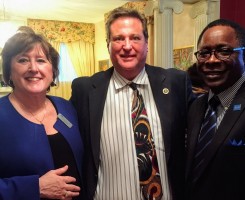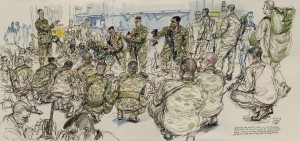We should all be so lucky as to have a mentor, a friend and coach who cares about what we do and how we do it. A mentoring relationship has a powerful effect on a young person. It builds a relationship of trust and respect. It leads to personal growth and development. Sure, dad can be a mentor of sorts, but there may be a built-in resistance to dad as a mentor. A mentor is someone who can be honest and objective. In some cases, dad may be too close.
According to the National Mentoring Partnership, mentoring helped young adults from getting off track, producing the following results:
55% were more likely to enroll in college
78% were more likely to volunteer
90% were interested in becoming a mentor themselves
130% were more likely to hold positions of leadership
Studies reveal
Several studies point out that those who regularly connect with mentors are less likely to skip school, even to cut a class. Those who welcome a mentor into their lives are less likely to use illegal drugs or alcohol (Public/Private Ventures study of Big Brothers, Big Sisters).
In a study titled The Mentoring Effect, 2014, 81% of young adults who lacked many opportunities but had a mentor in their lives were more likely to participate in sports and other extra-curricular activities.
A remedy for depression
A 2013 study titled The Role of Risk, revealed that the most outstanding benefit of having a mentor was a reduction in depression. One in four young people reported symptoms of depression. “Mentoring promotes positive social attitudes and relationships. Mentored youth tend to trust their parents more and communicate better with them,” the study found.
A good mentor has proper perspective
Dad, does your youngster need a mentor? As much as you are a role model for your children, a mentor—a friend, neighbor, work associate, pastor—may be in a better position to be objective and to keep expectations at a realistic level. We dads tend to live vicariously through our kids, which may only influence our expectations in a negative manner. A mentor can stand back and see balance or perhaps an unhealthy tilt.
Spanish writer Baltasar Gracian said, “Self-reflection is the school of wisdom.” A mentor self-reflects and passes that on to his or her subject. Oliver Wendell Holmes, an American writer, remarked, “It is the province of knowledge to speak, and it is the privilege of wisdom to listen.” In a mentoring relationship, listening may be the most important skill of all.













